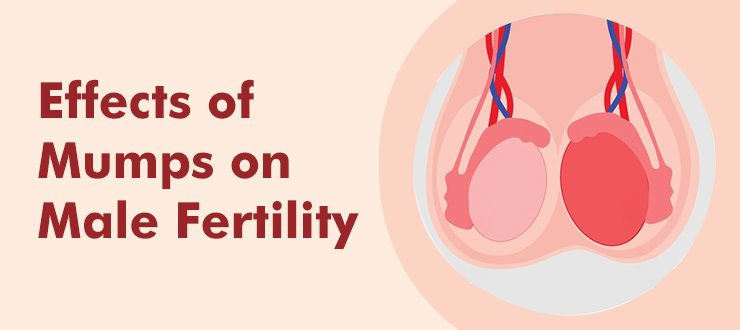
Mumps is a contagious viral illness that is caused by the mumps virus and primarily affects salivary glands, particularly the parotid glands located near the ears. This is a major characteristic characterized by swelling in the jaw and cheeks. It is considered a mild disease among children, but mumps can lead to serious complications among adults and adolescents. One of the major complications that could be concerning is complications in post-pubertal males, such as orchitis — inflammation of the testicles — which can, in some cases, impact fertility.
Mumps spreads through respiratory droplets and are highly contagious. After an incubation period of 16-18 days, symptoms such as fever, headache, muscle aches, and swollen salivary glands usually appear. Males, especially those who have attained puberty, are at a high risk of spreading this virus to their testicles. This condition, commonly known as mumps orchitis, typically occurs about 4–8 days after the onset of salivary gland swelling. It affects about 20–30% of post-pubertal males who contract mumps.
One of the long-term complications associated with mumps orchitis is testicular atrophy. This leads to shrinkage of the testicles, which leads to damage caused to the seminiferous tubules where sperm is produced. This could occur or spread up to 50% of affected testicles or may reduce the volume of sperm production permanently.
Inflammation can disrupt the blood-testis barrier, which leads to impairment of spermatogenesis, commonly termed sperm production. It has been retrieved from several studies that men who are prone to mumps orchitis might experience poor motility, low sperm count, and abnormal sperm morphology even years after the infection.
In rare cases, if both testicles are affected significantly, you have a higher chance of a reduction in testosterone production. This condition is known as hypogonadism, can lead to situations like reduced libido, erectile dysfunction, and other symptoms related to low testosterone.
Complete fertility is not possible, or we can say is quite rare, as it occurs especially in cases related to bilateral orchitis (affecting both testicles). However, most men retain some level of infertility even though they develop mumps orchitis, especially when their one testicle is affected.
Symptoms and history are major aspects that matter the most for diagnosing Mumps. If you are already into orchitis, blood tests and ultrasound imaging help in assessing testicular inflammation and rule out other conditions as well.
Treatment is supportive:
There is no specific antiviral treatment for mumps itself.
The best way to prevent mumps and its complications, including orchitis, is through vaccination. The MMR vaccine (measles, mumps, and rubella) is highly effective and part of routine childhood immunization schedules worldwide.
Two doses of the MMR vaccine are about 88% effective at preventing mumps. In outbreak settings, a third booster dose may be recommended.
While mumps is often seen as a benign childhood illness, its potential to impact male fertility through complications like orchitis underscores the importance of prevention. In the era of declining vaccination rates and rising outbreaks, awareness of mumps-related fertility risks is more important than ever.
If you or someone you know is experiencing testicular pain or swelling following a mumps infection, prompt medical evaluation is crucial. Early management may reduce complications and preserve reproductive health.